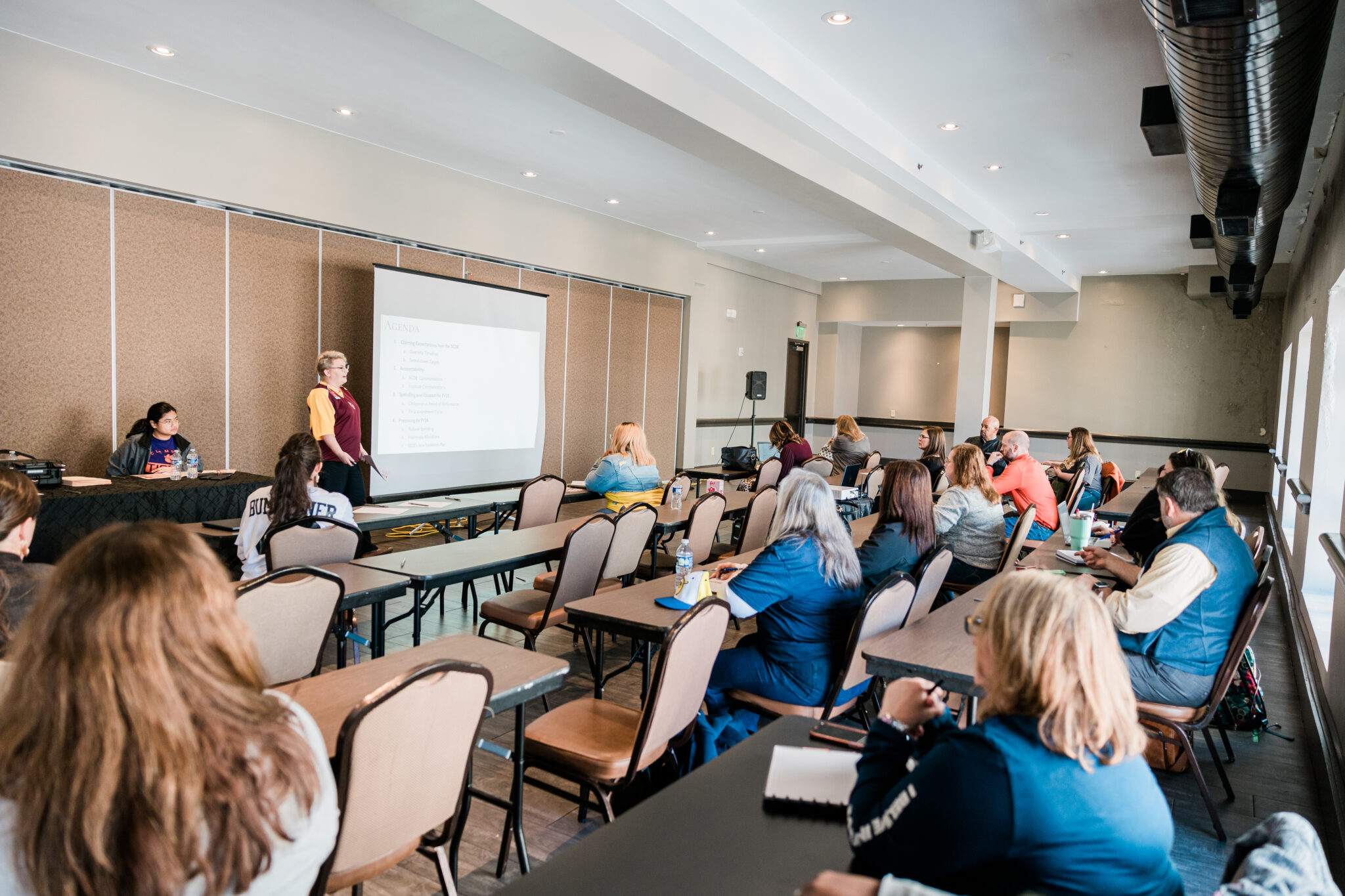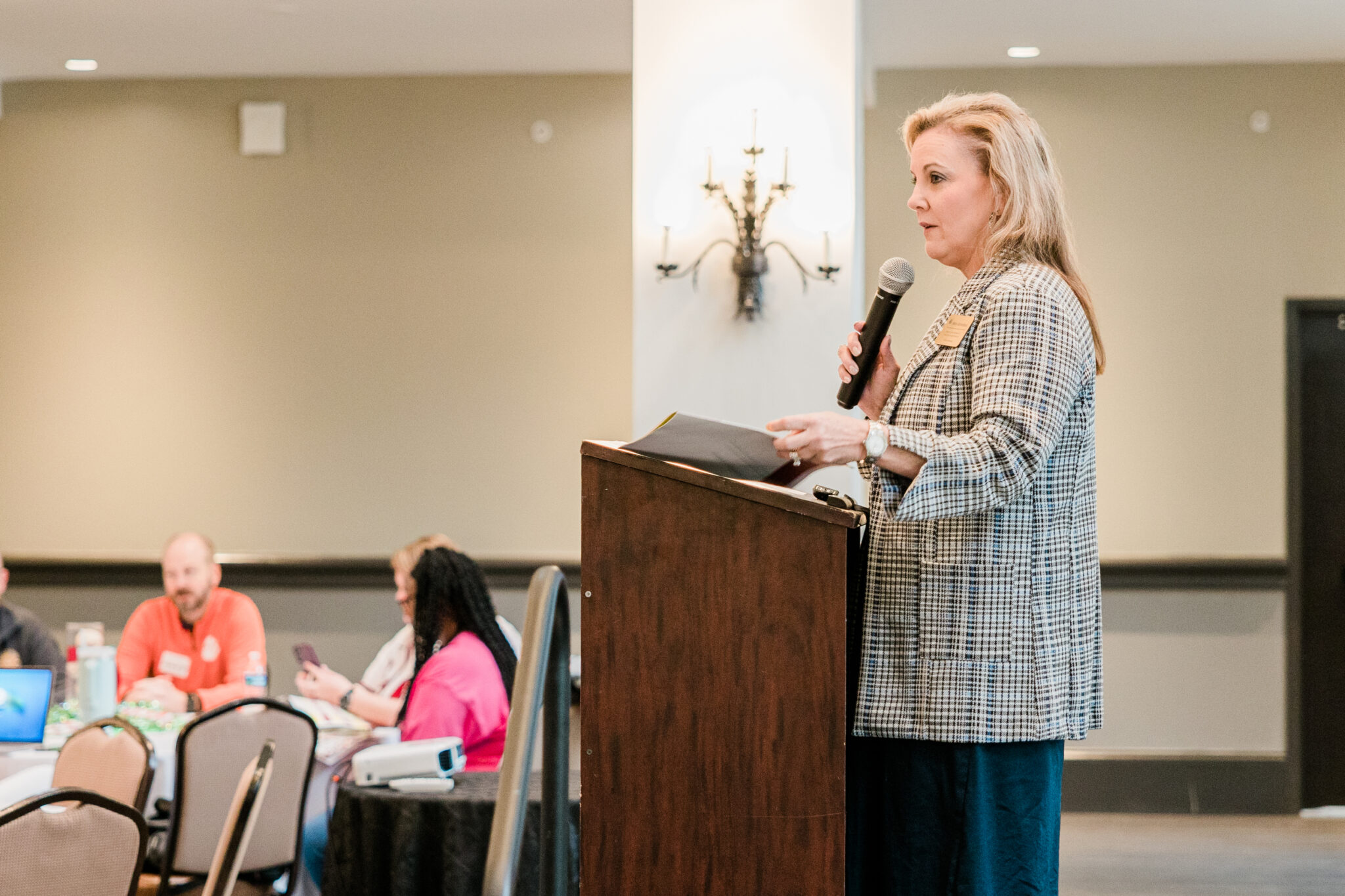Federal Programs
The Office of Federal Programs provides support for schools through Federal Programs funding which includes Title I, Title II, Title III, Title IV, IDEA (Individuals with Disabilities Education Act), ESSER, GEER, and CTE (Career and Technology Education).
Our mission is to provide a high-quality system of support to schools in order to promote educational excellence through the procurement, monitoring, and utilization of federal funds.









Federal Programs OVerview
title I
The purpose of Title I is to enable schools to provide opportunities for children served to acquire the knowledge and skills contained in the challenging state content standards and to meet the challenging state performance standards developed for all children.
This purpose is accomplished by such efforts as providing an enriched and accelerated educational program;
- promoting schoolwide reform through schoolwide programs or through additional services that increase the amount and quality of instructional time;
- significantly upgrading the quality of instruction by providing staff in participating schools with substantial opportunities for professional development; and
- affording parents meaningful opportunities to participate in the education of their children at home and at school.
Title II
The purpose of the Title II, Part A grant is:
- to increase student achievement consistent with challenging State academic standards,
- to improve the quality and effectiveness of teachers, principals and other school leaders,
- to increase the number of teachers, principals and other school leaders who are effective in improving student academic achievement in schools, and
- to provide low-income and minority student greater access to effective teachers, principals and other school leaders.
TiTle III
Title III is responsible for the oversight of the language instruction of limited-English proficient and immigrant students. This is accomplished by:
- administering grant programs that help children develop proficiency in English and achieve high content standards;
- recommending policies and promoting best practices for meeting the needs of English language learners;
- strengthening collaboration and coordination among federal, state, and local programs serving English language learners; and
- monitoring funded programs and providing technical assistance that addresses outcomes and accountability.
title IV
The purpose of Title IV funding is to improve student academic achievement by increasing the capacity of state educational agencies, local educational agencies, schools, and local communities through:
- providing all students with access to a well-rounded education.
- improving school conditions for student learning
- improving the use of technology in order to improve the academic achievement and digital literacy of all students.
Title IV funding must be spent in the following categories and ratios:
- Well Rounded- at least 20% of funds
- Safe and Healthy- at least 20% of funds
- Technology- no more than 15% of funds
IDEA
The purpose of the IDEA grant is to:
- support programs that help educate children and youth with disabilities.
- provide for the rehabilitation of youth and adults with disabilities.
- support research to improve the lives of these individuals.
CTE
The purpose of CTE funding is to:
- provide continuing Federal support for rigorous Career and Technical Education (CTE)programs that prepare students for today’s competitive workforce.
- prepares students to achieve challenging academic and technical standards.
- prepare students for high-skill, high-wage, or high-demand occupations incurrent or emerging professions.
- to strengthen the connections between secondary and postsecondary education.
McKinney-Vento Homeless Assistance Act
The purpose of the Federal McKinney-Vento Homeless Assistance Act is to:
- define children and youth who lack a fixed, regular, and adequate nighttime residence as homeless.
- ensure that each homeless child and youth has equal access to the same free, appropriate public education, including a public preschool education, as other children and youth.
The Charter Institute at Erskine is required to set-aside funding under Title I to assist with the students in need under the McKinney-Vento Homeless Assistant Act. If your school identifies students in need, please reach out to our office for funding assistance.
ESSERs I, II, III
The CARES Act (ESSER I) was implemented to provide emergency relief funds to address the impact COVID-19 has, and continues to have, on elementary and secondary education schools in South Carolina.
The Elementary and Secondary School Emergency Relief Fund (ESSER II). was allocated for the purpose of providing local educational agencies (LEAs) with emergency relief funds to address the impact that COVID-19 has had, and continues to have, on elementary and secondary schools.
The Elementary and Secondary School Emergency Relief Fund (ESSER III under ARP) was allocated for the purpose of providing local educational agencies (LEAs) with emergency relief funds to address the impact that COVID-19 has had, and continues to have, on elementary and secondary schools across the nation.
STAKEHOLDER PUBLIC INPUT SURVEY
The Institute is seeking public input from diverse stakeholders in order to obtain essential feedback in developing a plan that best meets the needs of students, families, educators, communities, and stakeholders. Your input will help shape the plans for addressing needs due to COVID-19 and how these funds are allocated.
GEER
The GEER Fund allocation was a one-time grant funded by monies received through the Coronavirus Aid, Relief, and Economic Security (CARES) Act. Governor Henry McMaster allocated $9 million of funding to public charter schools through the Governor’s Emergency Education Relief (GEER) fund to offset increased enrollment costs due to the COVID-19 pandemic.
Inventory
EDGAR 200.313(b)(1) General. A state must use, manage and dispose equipment acquired under a Federal award by the state in accordance with state laws and procedures.
(c) Use. (1) Equipment must be used by the non-Federal entity in the program or project for which it was acquired as long as needed, whether or not the project or program continues to be supported by the Federal award, and the non-Federal entity must not encumber the property without prior approval of the Federal awarding agency. (d)(1) Property records must be maintained that include a description of the property, a serial number or other identification number, the sources of funding for the property, percentage of Federal participation in the project costs for the Federal award under which the property was acquired, the location, use and condition of the property, and any ultimate disposition data including the date of disposal and sale price of the property.
Contact
JEANIE GLOVER
KAREN COOk
Executive Director of Federal Programs (803) 904-9808 [email protected]

